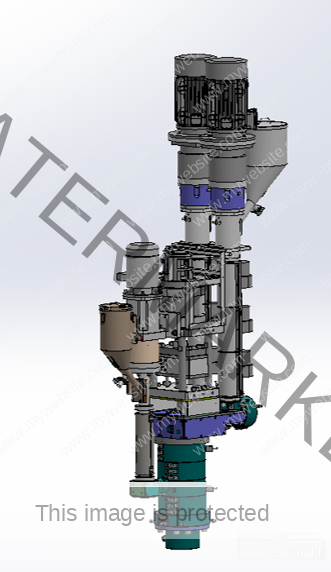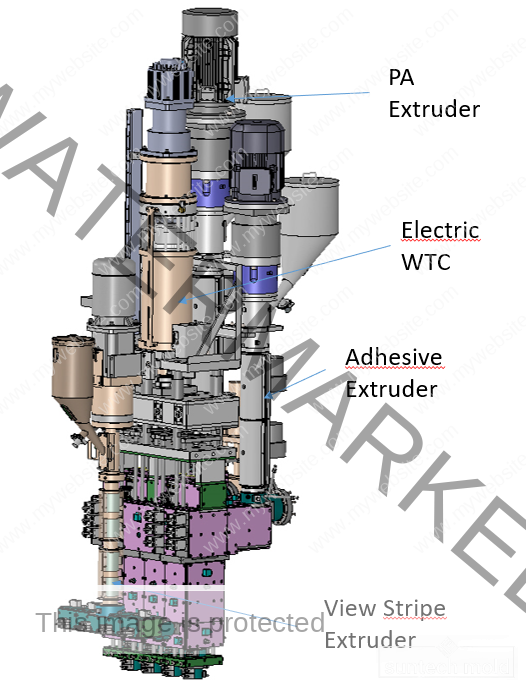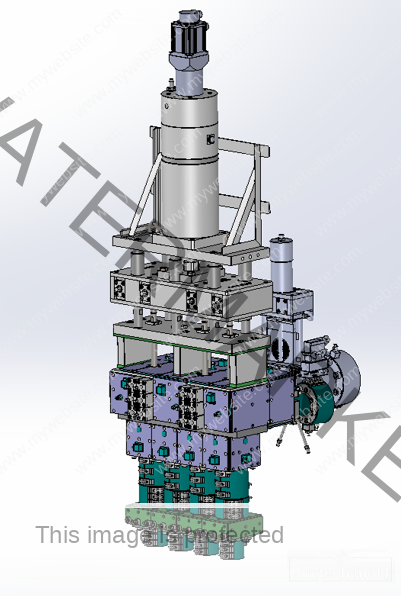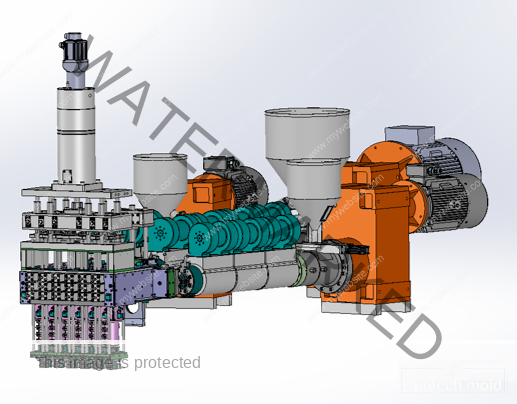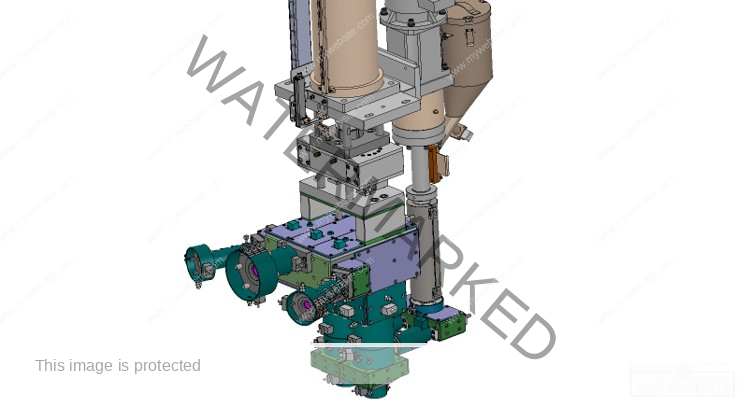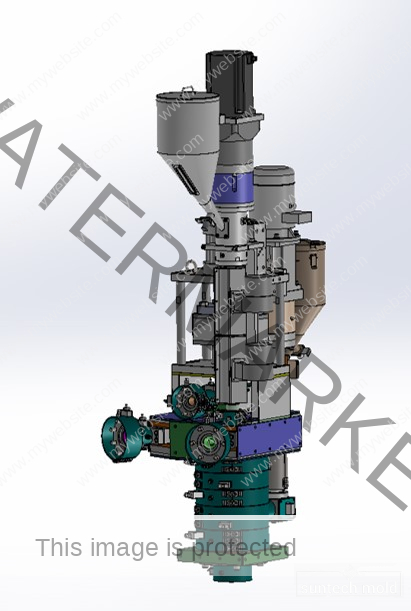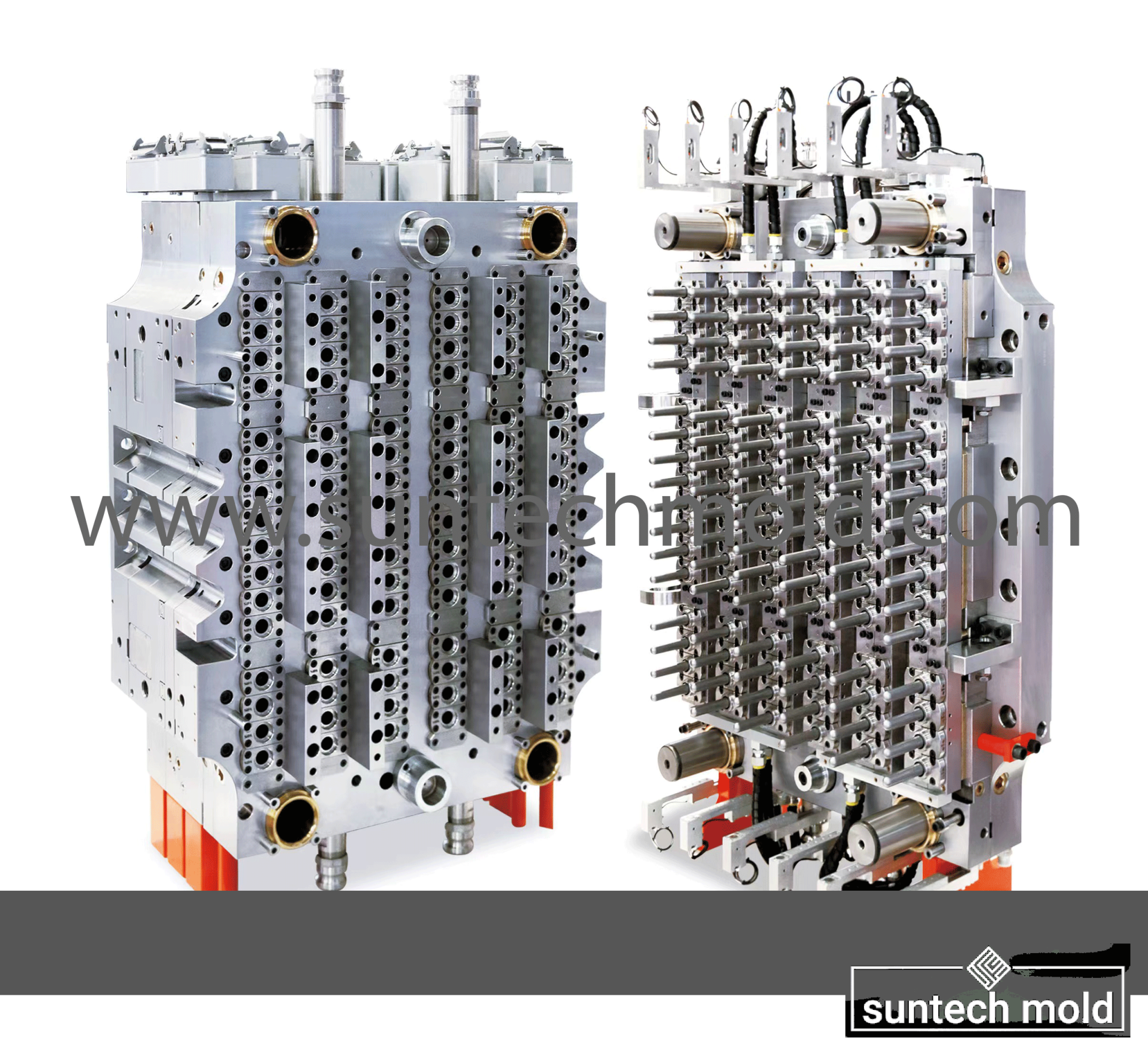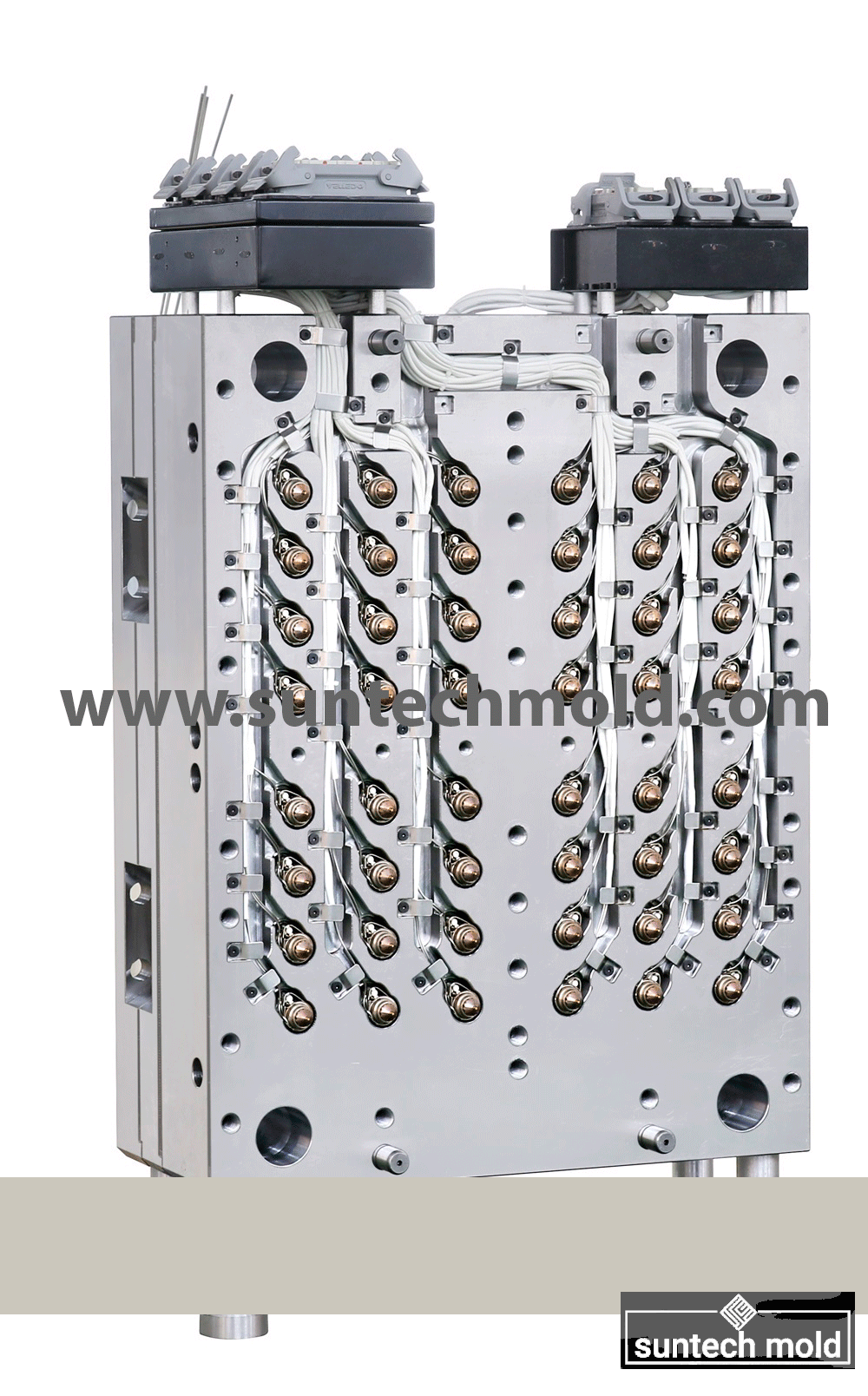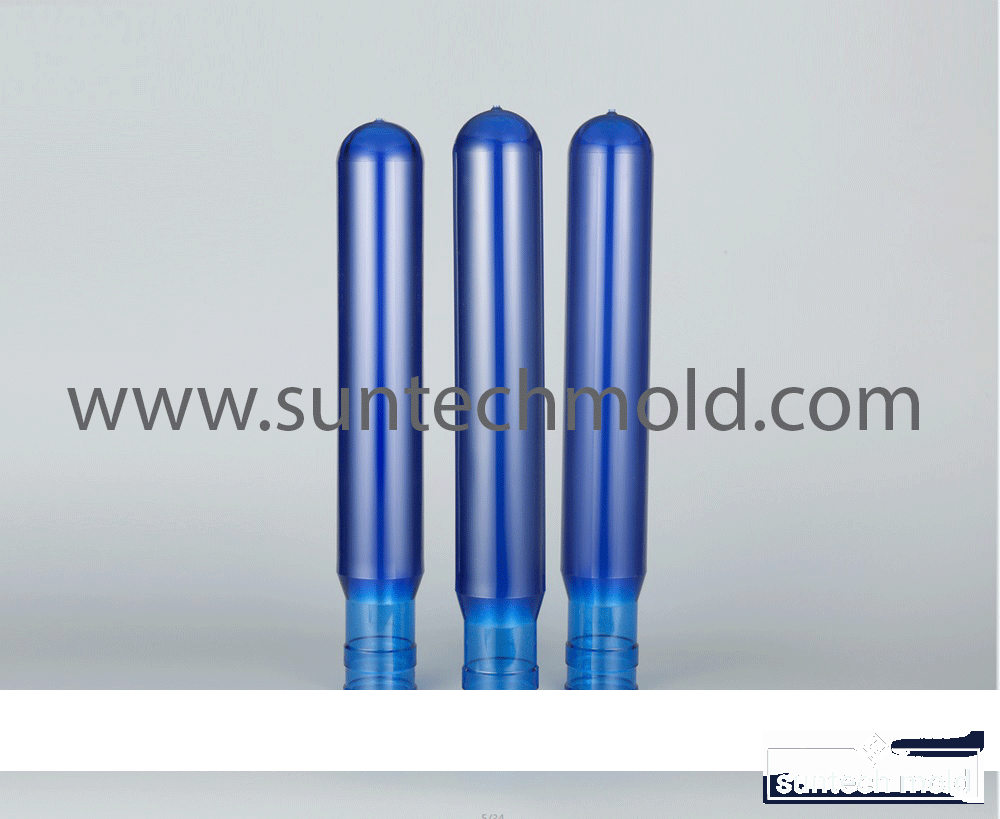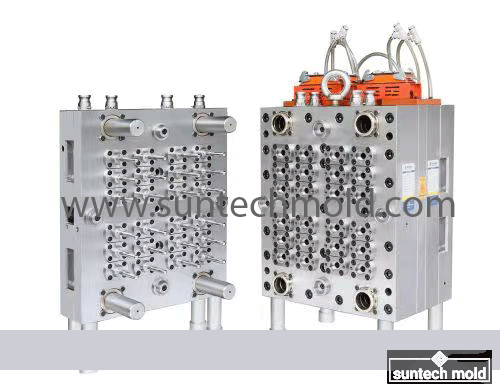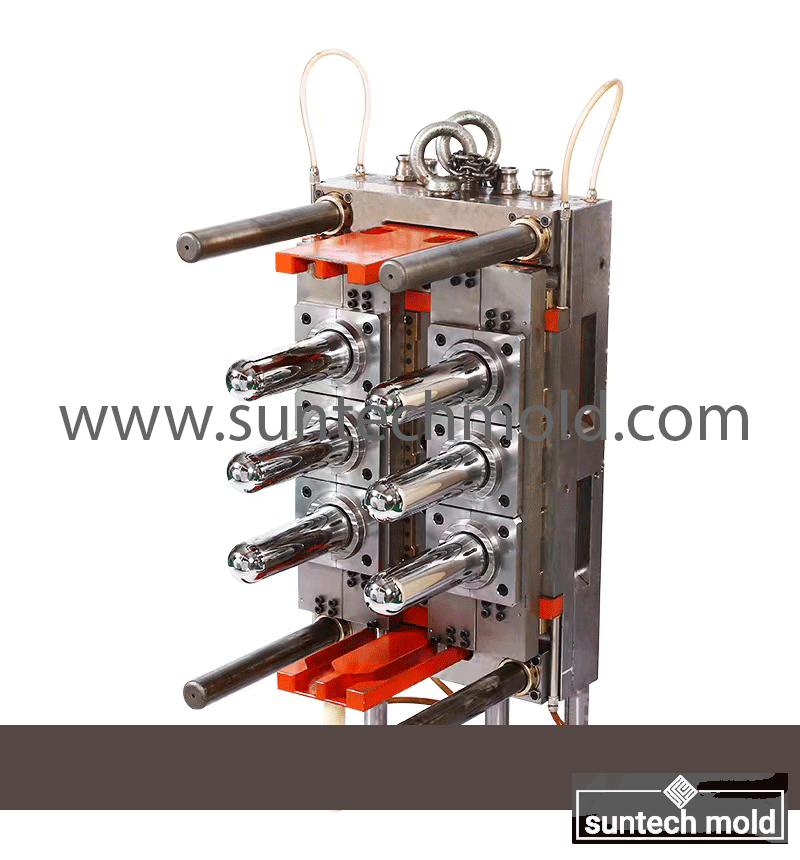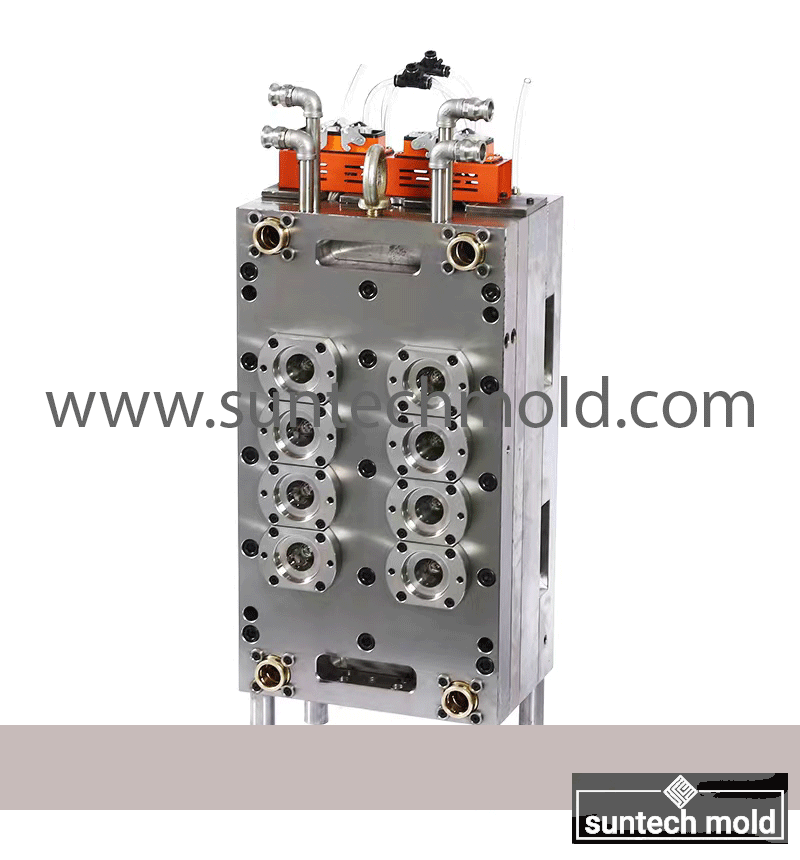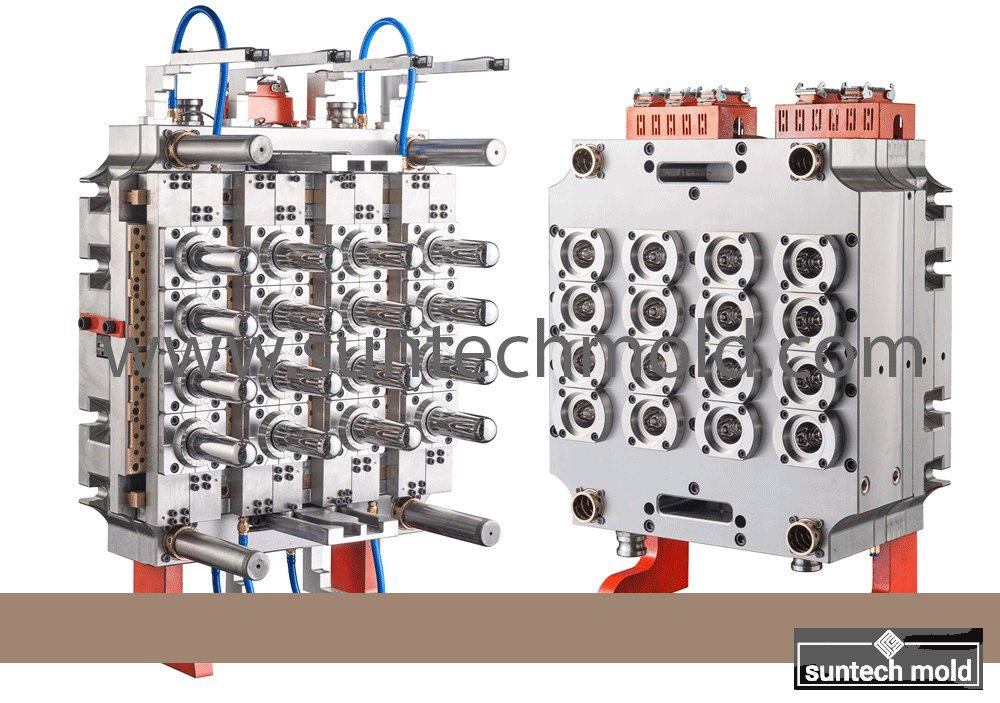100ml Preform Mold – Precision Molding for Small-Volume PET Bottles
The 100ml preform mold is a specialized tool used in PET bottle manufacturing for creating small-capacity containers. These preforms are widely used in industries such as personal care, pharmaceuticals, food and beverage, and household chemicals, where compact and lightweight packaging is essential. Precision, speed, and quality are critical when producing small preforms, making the design and construction of the mold a major factor in operational success.
The choice of resin significantly impacts mold material selection due to several factors. Here’s how different resin characteristics can influence the decision:
- Processing Temperature
- High-Temperature Resins: Resins like PEEK or certain polyimides require molds made from high-temperature materials such as tool steel or bimetallics to withstand the elevated temperatures without deforming.
- Low-Temperature Resins: Lower processing temperatures may allow for the use of aluminum molds, which are easier to machine and more cost-effective.
- Chemical Compatibility
- Corrosive Resins: If the resin is corrosive (e.g., certain acetates), molds made from stainless steel or specialized coatings are necessary to prevent degradation.
- Inert Resins: Non-corrosive resins may allow for a broader range of mold materials, including standard tool steels.
- Viscosity and Flow Characteristics
- High-Viscosity Resins: Resins with high viscosity may require molds that can withstand higher pressures, necessitating sturdy materials like tool steel.
- Low-Viscosity Resins: Easier flow allows for the use of lighter materials like aluminum, which can improve cycle times due to better thermal conductivity.
- Thermal Conductivity Requirements
- Heat-Sensitive Resins: Resins that degrade with excessive heat may require molds with good thermal management properties, such as those made from copper alloys or well-designed steel molds to control cooling effectively.
- Heat-Resistant Resins: Resins that can tolerate high temperatures may allow for the use of a wider range of mold materials.
- Surface Finish Requirements
- Aesthetic Resins: If the final product requires a high-quality surface finish, the mold material must support polishing and provide a smooth surface, making tool steels or certain aluminum alloys preferable.
- Functional Resins: If the surface finish is less critical, more cost-effective materials might be acceptable.
- Production Volume
- High-Volume Production: Durable materials like tool steel are often necessary for high-volume applications to withstand wear and maintain precision.
- Low-Volume Production: For lower production runs, aluminum molds might be favored due to their lower cost and easier machinability.
Designed for Accuracy and High-Speed Production
The 100ml preform mold is engineered for accuracy and repeatability, ensuring every preform produced meets exact specifications. These molds are typically made using advanced CNC machining technology and undergo rigorous quality checks to guarantee tight tolerances. Whether you’re running a high-volume production line or a short-batch specialty line, the 100ml mold provides consistent performance and durability.
Key Features of the 100ml Preform Mold
-
Multi-Cavity Configuration: To support large-scale production, the mold is available in multiple cavity options (such as 8, 16, 24, or 32 cavities). This enables manufacturers to produce high volumes in less time while maintaining uniformity across all preforms.
-
Optimized Cooling System: Small-volume preforms require rapid cooling to reduce cycle time without compromising quality. The mold is designed with internal cooling channels to efficiently manage temperature and enhance throughput.
-
Durable Mold Materials: Constructed from high-grade tool steel or stainless steel, the mold is built to withstand repeated cycles while maintaining structural precision.
-
Efficient Ejection System: Ejector pins or plates ensure that each preform is removed smoothly, preventing deformation or surface damage.
Applications of the 100ml Preform Mold
The 100ml preform mold is ideal for applications where small, portable PET bottles are required. This includes:
-
Cosmetics & Personal Care: Used for products like lotions, creams, hand sanitizers, and body oils.
-
Pharmaceuticals: Common in packaging for syrups, tonics, and over-the-counter medications.
-
Food & Beverage: Perfect for sample-sized juices, sauces, and flavoring extracts.
-
Household Products: Frequently used for compact versions of detergents, disinfectants, and cleaners.
Benefits of Using a High-Quality 100ml Preform Mold
-
Consistent Product Quality: Each cavity is engineered to deliver precise weight, neck dimensions, and wall thickness for compatibility with blow molding machines.
-
Reduced Waste: Precision molding reduces defects, saving material and operational costs.
-
Faster Production Cycles: Optimized design allows for shorter cycles, increasing productivity.
-
Long Tool Life: With proper maintenance, the mold delivers thousands of cycles with minimal wear and tear.
Conclusion
The choice of resin directly influences mold material selection by dictating requirements related to temperature, chemical resistance, flow characteristics, and surface finish. Understanding these relationships helps manufacturers optimize mold performance and longevity while ensuring product quality.

